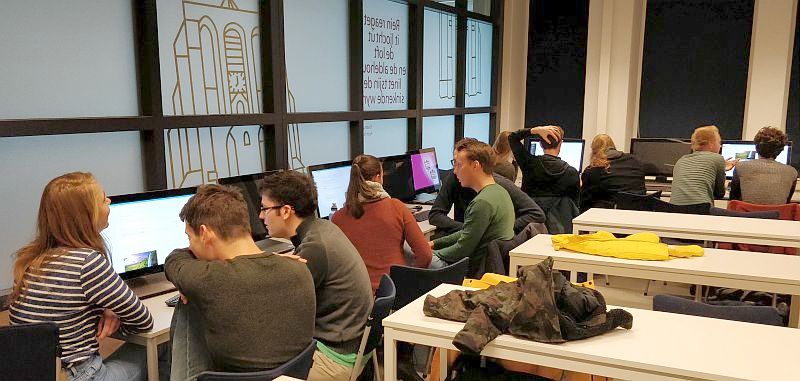New way of taking exams: first individually, then as a group

On December 11th, students of the Faculty of Spatial Sciences were the first to take a digital two-stage exam, where students first do the test individually, then again as a group. The groups have time to discuss about the question and form the answer together.
The individual grade makes up 75 percent of the final mark. The group score only counts if it is higher than the individually achieved grade. Groupmates who score lower do not bring down the final grade of the students who have a higher individual grade.
Learn from each other
The goal of the two-stage exams is to make students learn from each other. Lecturer Cultural Geography Peter Groote is the initiator. “Exams were used as a means to check whether students had done their job. I think it is important that students learn something from the exam. During the group exam, students were actively discussing the material.”
The students of the course in Nature, Landscape and Heritage of the master Cultural Geography were divided into groups of three by the teachers. The diversity of these groups provided different insights, which benefited the discussion. The students enjoyed making an exam in this way.
Result
The average final mark of the individual test is a 6.4, and a 6.9 for the group exam. Seven of the eighteen participants achieved a lower grade on the group exams than on their individual test. That could mean that students have to be even better trained in listening to each other's arguments to come to the best conclusion as a group.
More information
Video about two-stage exams by the University of British Columbia, Canada
More news
-
01 December 2025
The power of movement


